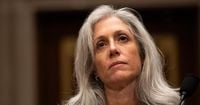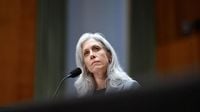On Wednesday, September 17, 2025, the U.S. Senate Committee on Health, Education, Labor, and Pensions (HELP) will convene for what’s shaping up to be one of the most consequential public health hearings in recent memory. Dr. Susan Monarez, the former director of the Centers for Disease Control and Prevention (CDC), will take the stand for her first public appearance since her abrupt ouster last month—a move that sent shockwaves through the public health community and Capitol Hill alike. Joining her is Dr. Debra Houry, the CDC’s former chief medical officer, who resigned in protest after Monarez was forced out. Together, they’ll offer a rare, inside look at the turmoil that has gripped America’s top public health agency under the leadership of Health and Human Services Secretary Robert F. Kennedy Jr.
According to ABC News, Monarez intends to present a detailed timeline of the events leading up to her firing, including a pivotal August 25 meeting where, she claims, Kennedy demanded she pre-approve all recommendations from the CDC’s vaccine advisory panel—regardless of the scientific evidence—and fire career officials overseeing vaccine policy. "He said if I was unwilling to do both, I should resign. I responded that I could not pre-approve recommendations without reviewing the evidence, and I had no basis to fire scientific experts," Monarez plans to say. She will also allege that Kennedy spoke with the White House several times before their meeting about her potential removal.
Monarez’s ouster came just 29 days after her Senate confirmation, a tenure so brief it left many in Washington reeling. The public announcement of her departure in late August was followed almost immediately by the resignations of four top CDC leaders, including Houry. The exodus was not quiet; it raised alarm bells about Kennedy’s vaccine policy agenda, which has included canceling approximately $500 million in mRNA vaccine contracts and changing CDC guidance for COVID-19 vaccinations—now recommending the shots only for people over 65 or younger Americans with underlying conditions. Recommendations for children and pregnant women were notably scaled back, a decision that has drawn sharp criticism from scientists and lawmakers alike.
But it’s not just the policies themselves that have caused concern. As reported by The Hill and CNN, Monarez and Houry’s testimonies reveal a pattern of political interference that, they argue, has undermined the CDC’s scientific mission. Monarez writes that she was fired "for holding the line on scientific integrity" and refusing to become a rubber stamp for Kennedy’s decisions. "I was never misaligned with administration priorities. The goals Secretary Kennedy recently cited publicly—protecting the public from threats, building infrastructure, modernizing systems, investing in the workforce, and enhancing scientific rigor—were the same priorities I articulated at my confirmation hearing and began advancing during my short tenure," Monarez asserts in her prepared remarks. "I remain supportive of those priorities. The question is whether they can be achieved without the expertise required at the CDC."
Houry, in her own prepared testimony, is even more blunt. She contends that Kennedy’s leadership has "significantly weakened and undermined" the CDC’s ability to protect American health. "Our Director, Dr. Susan Monarez, appointed by President Trump, and CDC’s senior scientific leadership were no longer permitted to rely on their expertise—they were expected to serve as rubber stamps for the Secretary’s decisions," Houry writes. She also points to the recent measles outbreak in Texas as a sobering example of the risks that come with sidelining science: "If vaccine protections are weakened, preventable diseases will return," she warns.
At the heart of the controversy is Kennedy’s overhaul of the CDC’s Advisory Committee on Immunization Practices (ACIP), the influential panel that guides national vaccine recommendations. As detailed by CNN, Kennedy removed all 17 sitting members earlier this year, replacing them with handpicked individuals, several of whom have publicly criticized vaccines or made unproven claims about their safety. Five more members were added on September 15, 2025, just days before the committee’s next meeting. This new group is scheduled to discuss recommendations for COVID-19, MMRV (measles, mumps, rubella, varicella), and RSV vaccines later this week—a meeting that has taken on outsized importance amid the agency’s upheaval.
Senator Bill Cassidy, a Louisiana Republican and chair of the HELP committee, has emerged as a key figure in the unfolding drama. Once a crucial vote in Kennedy’s confirmation, Cassidy has since become one of his sharpest critics. Announcing the hearing, Cassidy said, "To protect children's health, Americans need to know what has happened and is happening at the CDC. They need to be reassured that their child's health is given priority. Radical transparency is the only way to do that." Cassidy has called for the ACIP meeting to be delayed, warning its recommendations could be viewed with skepticism if the agency’s scientific credibility is in question.
The political fallout has not been confined to one side of the aisle. Senate Democrats, including Lisa Blunt Rochester, have openly called for Kennedy to step down, citing what they see as a dangerous politicization of public health. "The fact that a Republican is chairing the committee and called for her to come is a positive step, and maybe shows there is some weakening [of support]," Blunt Rochester told ABC News. "But the reality is, you know, Secretary Kennedy needs to go—whether that is he's fired, whether he quits, he is unsafe for America." Even Senate Majority Leader John Thune and other high-level Republicans have voiced criticism, with Senator Susan Collins stating she saw no "justification" for Monarez’s termination and Senator John Kennedy (no relation) likening the CDC’s current state to a "multiple vehicle pileup."
The stakes, as Monarez and Houry see them, are not theoretical. In her testimony, Monarez warns, "There is real risk that recommendations could be made restricting access to vaccines for children and others in need without rigorous scientific review. With no permanent CDC Director in place, those recommendations could be adopted." Houry echoes these concerns, stating, "Process matters because trust matters. If people believe outcomes are predetermined, or that recommendations are slanted by ideology rather than scientific data, they are less likely to accept even well-supported recommendations. Sadly, this is the path we are on."
For his part, Kennedy has stood by the shakeups, telling ABC News that the changes were "absolutely necessary adjustments to restore the agency to its role as the world's gold standard public health agency with a central mission of protecting Americans from infectious disease." In his own Senate hearing earlier this month, Kennedy disputed Monarez’s version of events, denying that he ever told her to rubber-stamp vaccine recommendations or fire scientific officials without cause. "I told her that she had to resign because I asked her, 'Are you a trustworthy person?' And she said, 'No,'" Kennedy claimed. Monarez, however, offers a different recollection: "Regarding trustworthiness—I cannot define that word for Secretary Kennedy. I made commitments to this Committee that I would lead with integrity, transparency, and purpose, and work with Congress to maximize health outcomes and protect the American people. Secretary Kennedy told me he could not trust me. I had refused to commit to approving vaccine recommendations without evidence, fire career officials without cause, or resign—and I had shared my concerns with this Committee. I told the Secretary that if he believed he could not trust me, he could fire me."
As the Senate hearing unfolds, Americans are left to grapple with the complex interplay of science, politics, and trust that now defines their nation’s public health leadership. The outcome could shape not only the future of the CDC but the health and safety of millions.





